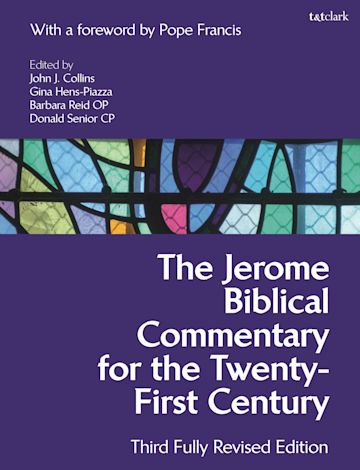


Are you sure you want to reset the form?
Your mail has been sent successfully
Are you sure you want to remove the alert?
Your session is about to expire! You will be logged out in
Do you wish to stay logged in?
To read more about other key topics and subject areas, visit our featured content archive page.
Explore these free-to-read resources from across Theology and Religion Online, all linked to the annual AAR/SBL conference held this November in San Diego. Featuring articles, eBook chapters, and reference work from academics speaking at this year’s conference.

A Hot Topic article from the Bloomsbury Religion in North America collection
In this article, Terra Schwerin Rowe highlights the significance of petro-religious studies in relation to climate change. Examining the “petro-apocalypse” in the late nineteenth century, the spiritual and religious methods of finding oil, and oil culture and contemporary religious divides.
AAR/SBL session: Class, Religion, and Theology Unit and Religion and Ecology Unit
Theme: Intersections of Ecology, Activism, and Social Transformation: Alternative Paradigms and Movements 23rd November, 3:00 PM - 4:30 PM
Terra Schwerin Rowe and Joerg Rieger will present their paper: Liberating People, Planet, and Religion: Intersections of Ecology, Economics, and Christianity

From The Jerome Biblical Commentary for the Twenty-First Century: Third Fully Revised Edition in the Library of Catholic Thought collection
In this chapter, Gina Hens-Piazza examines the Book of Ruth in depth, looking at its plot, historicity, literary features and much more. Hens-Piazza posits that Ruth is not just a picturesque literary achievement, but also discloses the legal, religious, familial, moral, and national complexities reflective of ancient Israelite society.
AAR/SBL session: Literature and History of the Persian Period Unit
Theme: Methodology of Dating Literature
24th November, 9:00 AM to 10:30 AM
Gina Hens-Piazza will be presenting her paper: Reading the Book of Ruth as Resistance Literature

An article from the Bloomsbury Religion in North America collection
Lloyd Barba explores the history of Latinx Christianities in North America in this article. From Catholicism to Pentecostalism, Barba takes a look at various Latinx communities, their connection to Christianity, and the socio-political back drop to their faith.
AAR/SBL session: Latina/o Religion, Culture, and Society Unit
Theme: Latin American and US Latino Religions in North America - A Roundtable Panel
25th November, 3:00 PM - 4:30 PM
Lloyd Barba will be a roundtable panelist discussing Latin American and US Latino Religions in North America: An Introduction, a volume published by Bloomsbury in July 2024.
Read now

From Free Zone Scientology: Contesting the Boundaries of a New Religion in the Bloomsbury Religion in North America collection
Aled Thomas examines the life of L. Ron Hubbard, founder of the Church of Scientology, the concept of the Free Zone, and the interplay between “freezoners” and the institution of Scientology. This detailed chapter looks at keys figures on both sides of the debate, exploring the short and turbulent history of the Church of Scientology.
AAR/SBL session: New Religious Movements Unit
Theme: Scriptures, Schisms, and (Digital) Spiritualities
25th November, 9:00 AM - 11:00 AM
Aled Thomas will present his paper: Digital 'Squirelling': Transitions and Transformations in Free Zone Scientology

From Cyber Muslims: Mapping Islamic Digital Media in the Internet Age from the Bloomsbury Religion in North America collection
Historically museums have sought to tell Muslims who they are, rather than respecting how Muslims define themselves. In this chapter Hussein Rashid explores the visual and cultural (re)presentation of Islam and Muslims both in physical museum spaces and on digital platforms.
AAR/SBL session: Contemporary Islam Unit
Theme: Refusing the Normative through Racial and Gendered Embodiment
25th November, 5:00 PM - 6:30 PM
Hussein Rashid will preside over this panel, which showcases three papers that challenge established religious and social norms through racial and gendered embodiment